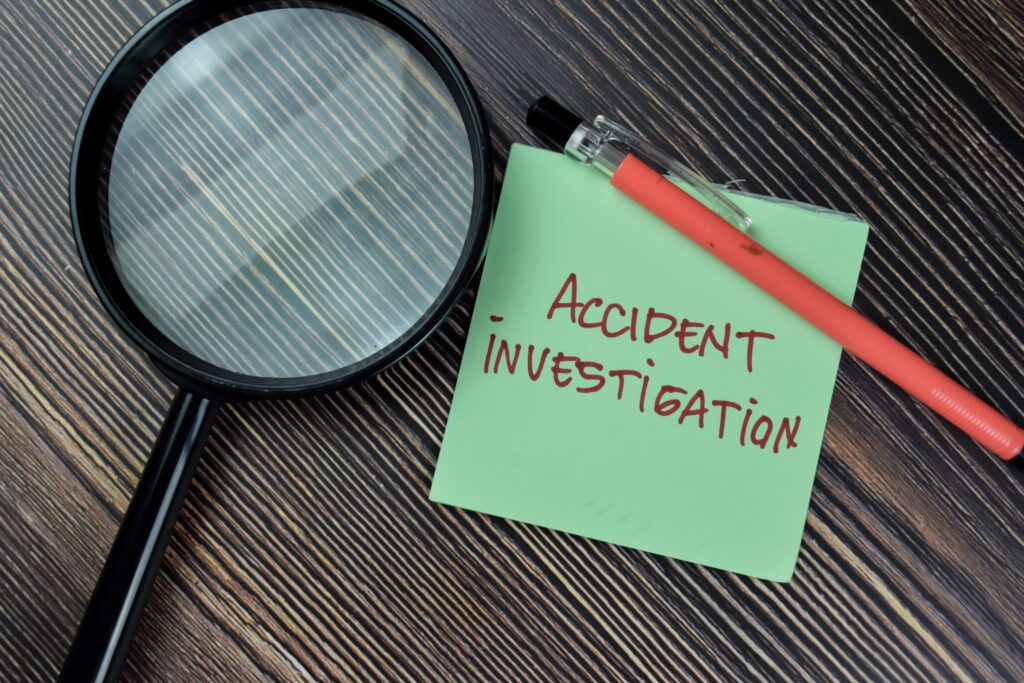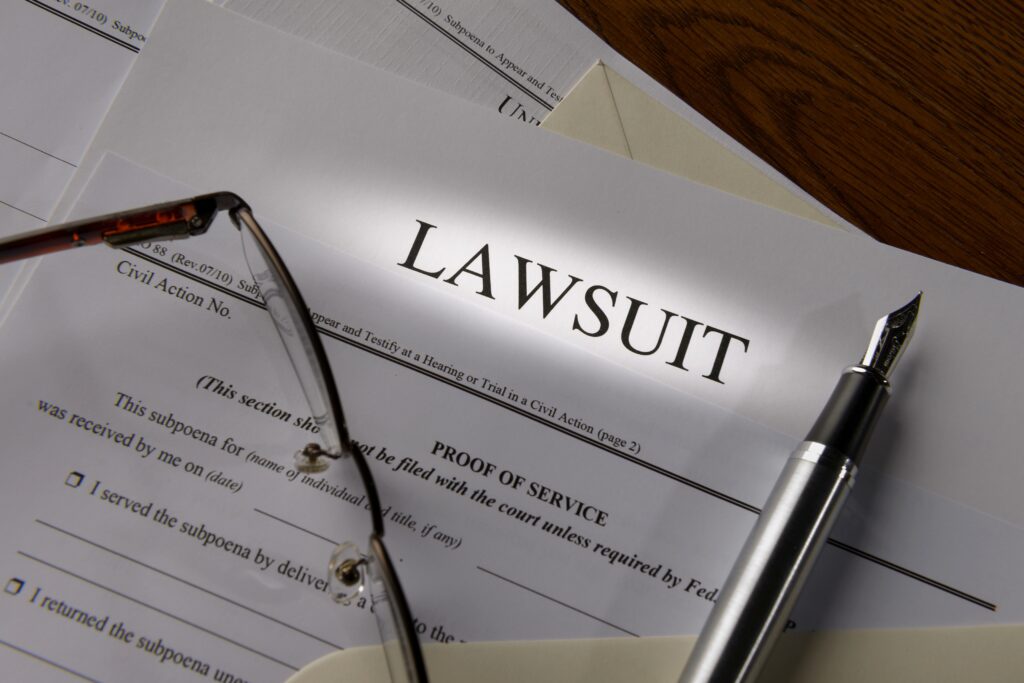If you've suffered an injury in an accident that wasn't your fault, one of your top priorities should be contacting an experienced personal injury attorney. A skilled lawyer can fight for your rights and seek the full and fair compensation you deserve for your injuries and losses.
But many accident victims worry about affording a lawyer. The good news is that most personal injury lawyers in West Palm Beach work on a contingency fee basis. So, what exactly does a contingency fee mean?
Understanding Contingency Fees
A contingency fee is a payment arrangement where the lawyer only gets paid if they win money for you in your case, either through a settlement or court verdict. If you recover no money, you owe the lawyer nothing. It means the lawyer is taking on the financial risk of pursuing your case.
Here's how it typically works:
- You and the lawyer agree upfront on a percentage the lawyer will take from any money recovered. The exact percentage can vary.
- As the case progresses, the lawyer covers the costs of things like gathering evidence and hiring experts. You don't have to pay for these expenses.
- The lawyer takes their contingency fee percentage and deducts any costs incurred if and when money is recovered. You get the remaining amount.
- If no money is recovered, you owe nothing. The lawyer absorbs the loss of the time and money they put into the case.
Key Benefits of Contingency Fees
There are several important advantages of contingency fees for personal injury victims:
No Upfront Costs
One of the biggest benefits is not having to pay the lawyer any money out of pocket to get started on your case. Accident-related expenses like medical bills can put a big financial strain on victims. Contingency fees make it possible to hire a top personal injury lawyer without adding to that burden.
Motivation to Win
Contingency fees motivate lawyers to work hard on your case and fight for the maximum recovery possible. The more money you get, the more money the lawyer makes too. You know the lawyer will put in the time and effort needed because it's also in their financial interest.
No Fee If No Recovery
With contingency fees, you avoid owing a lawyer a lot of money if the case is unsuccessful. If the lawyer fails to recover money for you, you walk away owing nothing. This gives victims peace of mind during an already stressful time.
What Contingency Fees Cover
Contingency fee agreements in personal injury cases usually cover the attorney's services for handling things like:
Investigating the Accident

One of the first things your personal injury lawyer will do is thoroughly investigate the accident that caused your injuries. This involves looking at all the facts and circumstances surrounding the incident to get a clear picture of what happened.
Your lawyer will ask detailed questions about the accident, such as where and when it occurred, what you were doing at the time, and how it unfolded. They'll want to know about any witnesses who saw what happened and any evidence you may have, like photos or videos from the scene.
Your personal injury lawyer will also investigate the background of the person or company responsible for the accident to determine if they have a history of similar incidents or safety violations. This can be important evidence to support your case.
Gathering Evidence to Support Your Case
To build a strong case, your lawyer will work to gather all the relevant evidence. This often includes:
- Police reports that document the accident and any citations issued
- Medical records detailing your injuries and treatment
- Witness statements describing what they saw
- Photos of the accident scene, property damage, and your injuries
- Video footage from traffic cameras or nearby security cameras
- Employment records showing missed work and lost income
- Expert opinions from accident reconstructionists or medical professionals
Your lawyer will use this evidence to paint a clear picture of the accident, the extent of your damages, and the other party's fault. More evidence usually means a stronger case and a better chance of recovering full compensation.
Determining Who Is Legally at Fault
To recover money in a personal injury case, you must prove that the other party is legally at fault for causing the accident and your injuries. This is known as establishing liability.
Your lawyer will carefully analyze the evidence to determine who is liable. Liability may be clear in some cases, like a rear-end car accident, but it can be more complex in others, like a slip-and-fall accident.
To establish liability, your personal injury lawyer must show:
- The other party owed you a legal duty of care
- They breached that duty by acting negligently
- Their negligence directly caused your injuries
- You suffered actual damages as a result
Proving liability requires applying state laws and legal precedents to the unique facts of your case. Your lawyer's knowledge and experience in this area are crucial.
Assessing the Full Extent of Your Damages
To seek full compensation, your lawyer needs to assess the full extent of your damages. Damages address how the accident and injuries have negatively impacted your life. They can include:
- Past and future medical expenses
- Property damage
- Lost income and reduced earning capacity
- Emotional distress
- Pain and suffering
- Loss of enjoyment of life
Some damages, like medical bills and lost income, are fairly easy to calculate. Others, like pain and suffering, are more subjective and require skill to value.
Your lawyer will gather documentation of all your damages and may consult with experts like doctors and economists to build a strong case for the full compensation you deserve.
Negotiating Aggressively with Insurance Companies
Once your lawyer has built a solid case, they will negotiate with the insurance companies representing the at-fault party. The goal is to reach a fair settlement agreement that fully compensates you for your damages.
Insurance companies are notoriously difficult to deal with. They often try to minimize payouts by offering lowball settlements, disputing liability, or questioning the seriousness of injuries.
Your lawyer will aggressively negotiate with the insurers, presenting evidence of liability and damages and fighting for your rights. They have experience with insurance company tactics and know how to counter them.
Negotiations can involve a lot of back and forth. Your lawyer will advise you on settlement offers and work to get the best possible outcome. Most cases settle out of court, but your lawyer should prepare to file a lawsuit and take your case to trial if the insurance company doesn't agree to a fair settlement.
Filing a Lawsuit and Presenting Your Case in Court

If the insurance company refuses to offer a fair settlement, your lawyer may need to file a personal injury lawsuit to pursue the compensation you deserve. This involves drafting and filing legal documents with the court that outline your case against the at-fault party.
Once a lawsuit is underway, your lawyer will handle all the procedures and represent you in court. This includes:
- Conducting discovery to get evidence and information from the other side
- Taking depositions of witnesses and experts
- Attending court hearings and conferences
- Arguing motions on legal issues in your case
- Presenting your case at trial before a judge and jury
- Examining and cross-examining witnesses
- Delivering opening and closing arguments
- Objecting to improper evidence or testimony by the other side
At trial, your lawyer's goal is to persuasively present your case and convince the jury to award you full and fair compensation for your injuries and damages. This requires skill in court procedures, evidence rules, and persuasive speaking.
If you win at trial, the jury will issue a verdict specifying the amount of money damages you should receive. The judge will enter a judgment, which is a court order requiring the other side to pay you that amount.
Basically, the contingency fee pays for the lawyer's time, experience, and firm's resources in pursuing your case. The lawyer shoulders all the financial risk in exchange for the chance to share in the money they recover.
Costs vs. Fees
It's important to understand the difference between costs and fees in a contingency fee arrangement:
Attorney Fees: Paying for the Lawyer's Services
Attorney fees are part of the contingency fee that covers payment for the lawyer's actual services on your case. This includes all the time and work the lawyer puts in to move your case forward and fight for your rights. The attorney fees come out of the agreed-upon contingency percentage of any money recovered in your case.
Costs: Expenses the Lawyer Pays Upfront
In addition to attorney fees, various costs arise when pursuing a personal injury case. These costs refer to expenses the lawyer incurs while working on your case, such as:
- Court filing fees to start a lawsuit
- Fees for obtaining police reports and medical records
- Costs of hiring expert witnesses to testify on issues like fault or injuries
- Deposition costs for sworn testimony from witnesses
- Trial exhibit preparation costs
The lawyer typically fronts these costs for you as the case progresses. This means the lawyer initially pays for these expenses out of their pocket. You do not have to come up with the money for these costs upfront.
It's important to discuss costs with your lawyer upfront and understand how they will be paid so there are no surprises. Reputable lawyers are transparent about costs and will explain them clearly in the contingency fee agreement. They should also keep you reasonably updated on costs incurred as the case progresses.
Other Fee Arrangements
While contingency fees are most common in personal injury cases, not all cases can be handled on contingency. In a case where only non-monetary remedies are sought or permitted, for example, there may be no pot of money from which to take a percentage. If your case involves no pursuit of a monetary award, you'll likely have to pay the lawyer based on an hourly fee or flat fee instead.
Even in personal injury cases, there may be certain scenarios where you have to pay the lawyer a small fee while the contingency arrangement still applies to the overall case. For instance, if your lawyer represents you in related criminal proceedings or a benefits claim alongside your injury case. But these fees are usually quite minimal.
Maximizing Your Recovery
The whole point of hiring a personal injury lawyer is to get as much money as possible for your injuries and losses. Since a contingency fee gives the lawyer a stake in the size of your financial recovery, choosing a lawyer you believe will fight fiercely for you is crucial.
During your initial consultation, ask the lawyer questions like:
- How many cases like mine have you handled?
- What were the results in those cases?
- What do you think my case is worth?
- How will you go about maximizing my recovery?
- Who will be working on my case?
- How often will you update me on the status?
Choose a personal injury lawyer who can speak clearly and confidently about their experience, assess your case's strengths, and develop a strategy for pursuing maximum compensation.
Negotiating with Insurance Companies

One key value a personal injury lawyer brings is skilled negotiation with insurance companies. Remember, insurers are not on your side. Their goal is to pay you as little as possible. A lawyer evens the playing field and advocates forcefully for your interests.
Insurance adjusters know which lawyers have a track record of taking cases to trial and winning big if needed. Your lawyer's reputation alone can often spur insurers to offer a fair settlement to avoid facing that lawyer in court.
Your lawyer will deal with all the back-and-forth negotiations, working to resolve your case for an amount that fully compensates you. The contingency fee motivates them to drive a hard bargain.
Taking Your Case to Court
If the insurance company doesn't agree to a just settlement, your personal injury lawyer should be fully prepared to file a lawsuit and take your case to trial. The threat of litigation is a powerful bargaining chip. Insurers know that juries can be very sympathetic to injured victims.
At trial, your lawyer will present persuasive evidence and arguments to prove the other party's fault and the extent of your damages. Experienced trial lawyers know how to convey your story in a compelling way.
Most personal injury lawyers intentionally limit the number of cases they take so they can devote the necessary time and attention to each one. Securing full and fair compensation requires a willingness to go the distance.
Contact a Personal Injury Attorney to Secure Your Future
If you've suffered an injury by another's negligence or wrongdoing, don't let concerns about legal fees stop you from getting the justice and compensation you deserve. Most personal injury lawyers offer free initial consultations, so it costs nothing to discuss your case and learn your options.
When you're ready to take action, look for an experienced personal injury attorney in your area who handles cases like yours and works on contingency. With a skilled lawyer, you can take on the insurance companies confidently and focus on building a brighter future for yourself and your family.